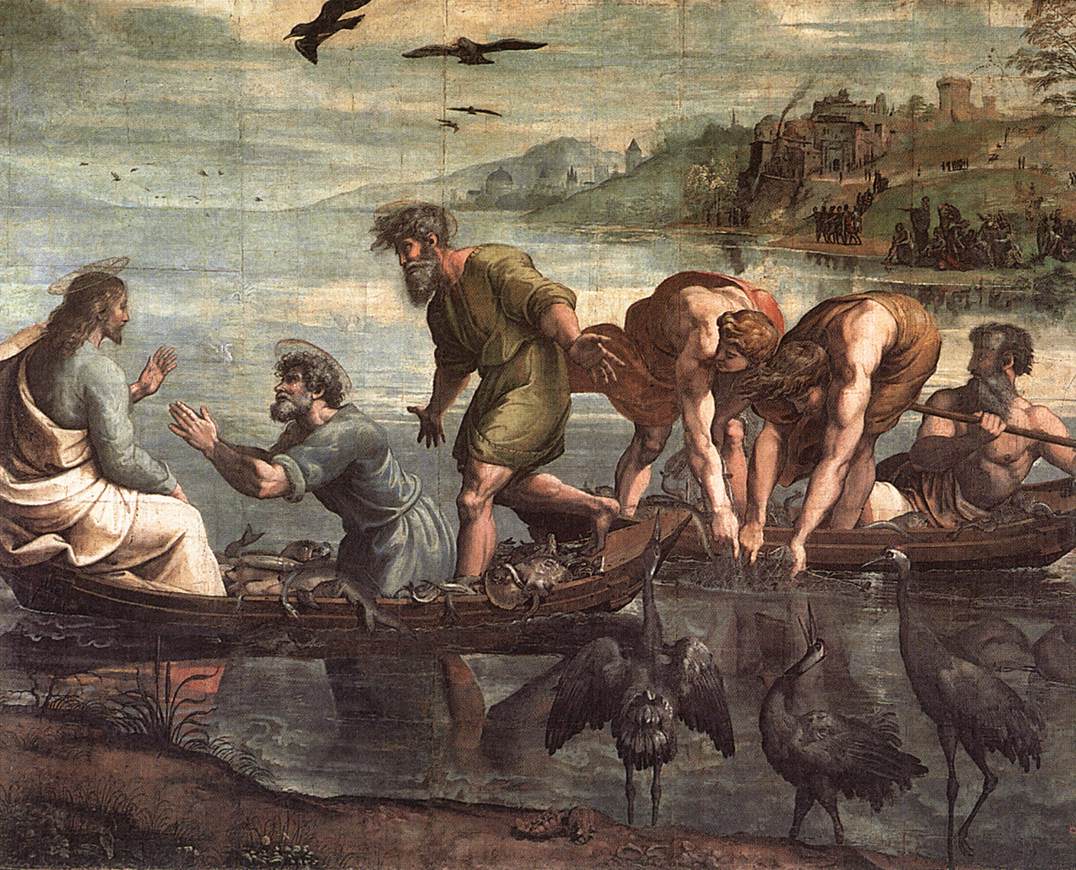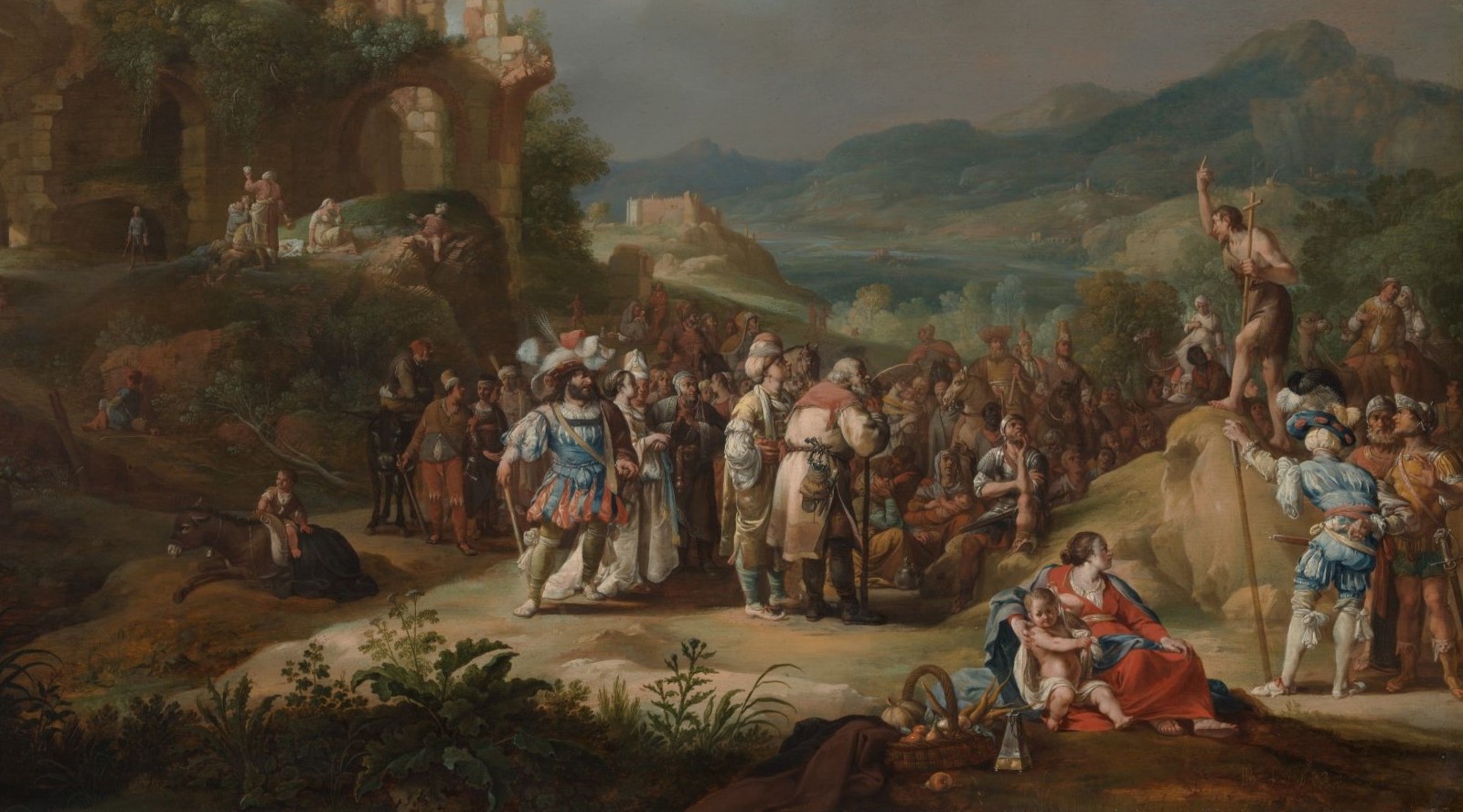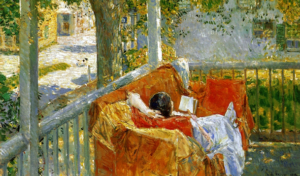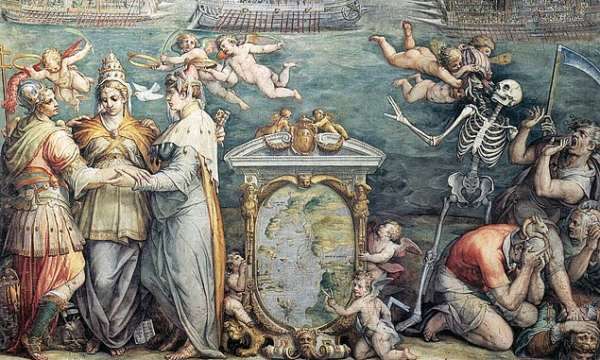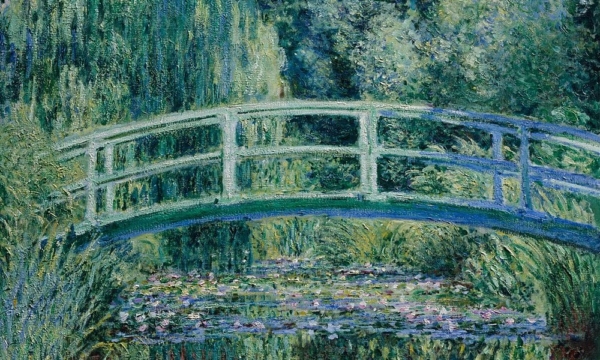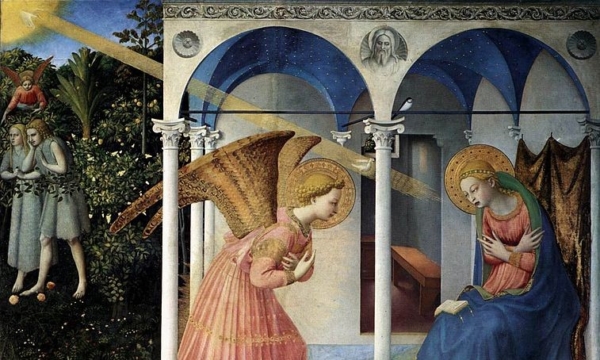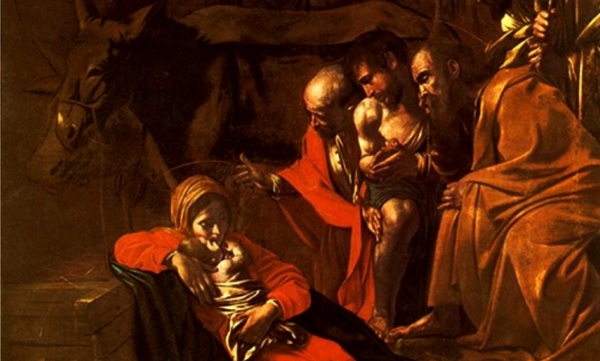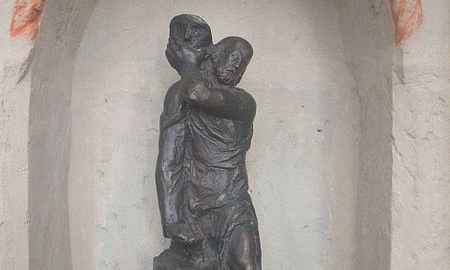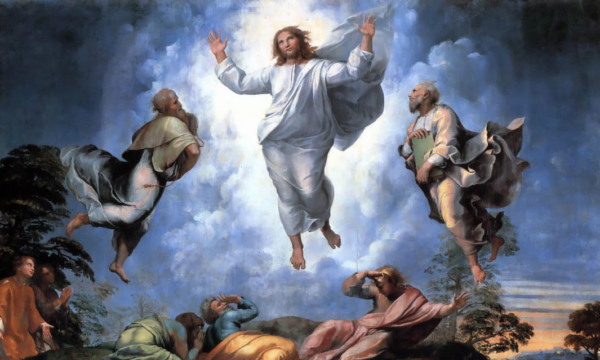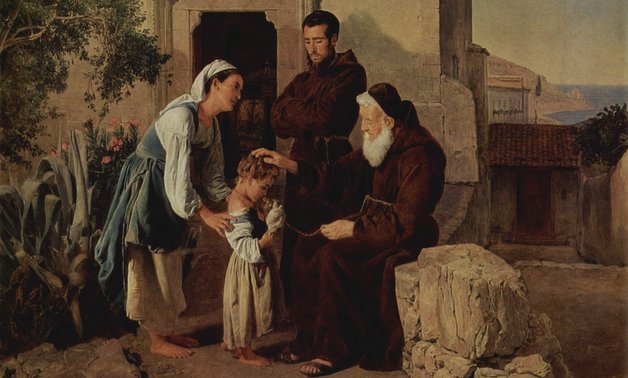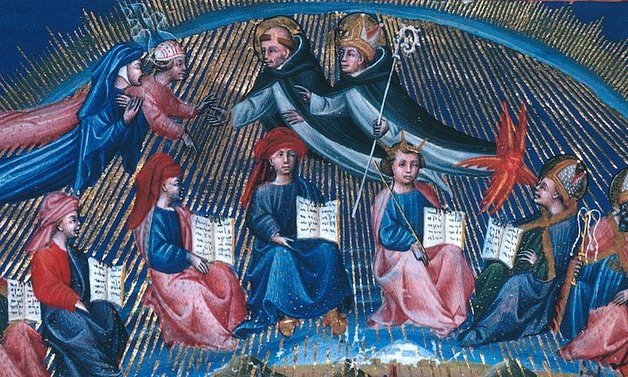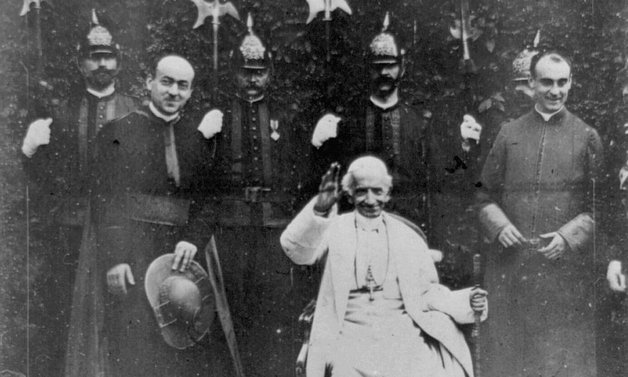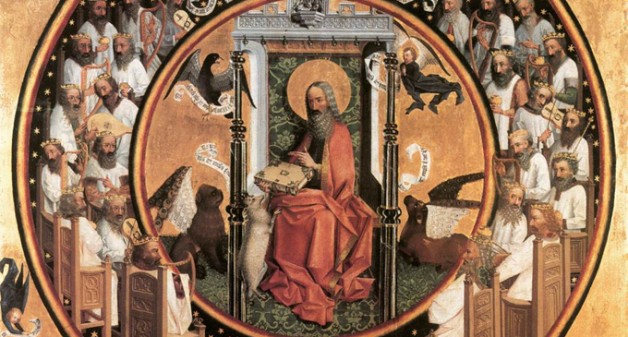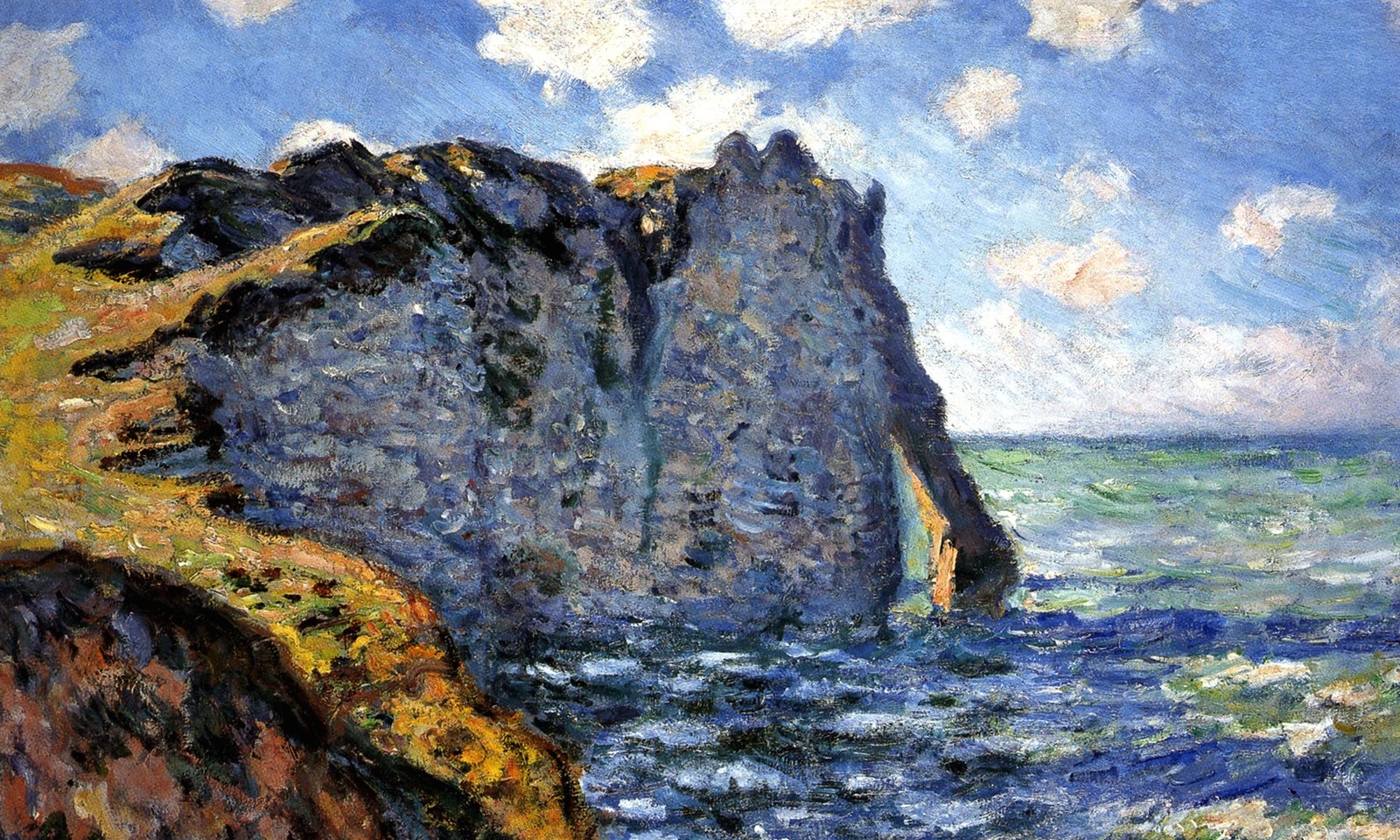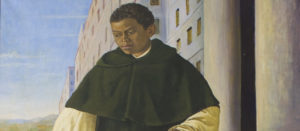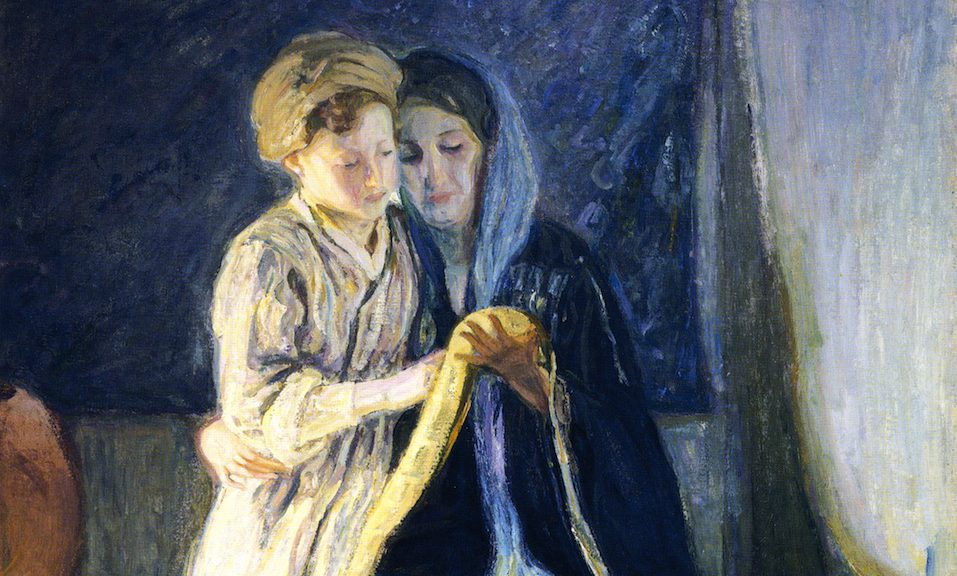The Reason for Our Hope
Saint Peter demands that his flock rejoice amid life’s trials. He asks Christ’s followers to stand ready to defend their folly. But Christ and his Church do not demand the impossible. If Hope is the reason to smile in the face of death, we need to give a reason for our Hope (1 Pet 3:14–16). Read this series.
Preaching: Feeding Fellow Beggars
Throughout salvation history, the ineffable God has revealed himself in words, words uttered by human voices. In his Divine Wisdom, God has chosen to use preachers—finite, fallible instruments—to communicate infinite, saving truth. They are beggars tasked with feeding fellow beggars bread. In this series we student brothers offer our reflections on the mysterious task of preaching, illustrated in the lives of some of the greatest preachers in the Church’s history. Read this series.
2024 Summer Reading Recommendations
The semester is over, and the brothers have dug deep. Summer is an opportunity to rest in the work we’ve done, reap the fruits, and delight in great books. Take a look at the Friars’ bookshelf as they read and review literature and other media. Read this series.
Pilgrimages: Paths We Tread
The Christian treads a strange path. As the saying goes, we are mere pilgrims on this earth. The whole Christian life unfolds as a journey of restless ascent—of seeking a distant home while living in a foreign land. The brothers now offer reflections on their pilgrimage experiences. Some traveled an hour away; others spent weeks across the globe. We hope their reflections inspire you with a desire to take up the pilgrim’s staff. Read this series.
American Catholic Authors
The American Dream, despite its associations with land, financial prosperity, and a rags-to-riches mentality, is expressive of a far more general idea—Americans tend to think big. The open road stretches for miles into the horizon. What can’t be done? Their eyes are set upon the heights, and little can get in the way of their designs. Two particular groups of Americans exemplify this notion: writers and Catholics. So we at Dominicana are offering six reflections on six writers from the American Catholic canon. Read this series.
2023 Summer Reading Recommendations
As Earth turns itself toward the Sun, our brothers yet again turn your attention to the wisdom of the greats. Take another glance at the Friars’ bookshelf to soak in the best of literature and other media. Read this series.
Aquinas and the Fathers
Saint Thomas’s reception of the Fathers points us beyond the Fathers to the source and goal of all theology, God himself. With this in mind, we at Dominicana offer you several posts that illustrate how St. Thomas received the wisdom of the ancient Church. Read this series.
2022 Summer Reading Recommendations
As the summer returns, this series also returns to share with our readers some items from the friars’ bookshelves. We hope you will find within these books, and other forms of media, a resource of enlightenment and leisure. Read this series.
Thomas and the Thomists
The Thomistic commentators are some of the great unsung heroes of the Church’s intellectual tradition. In order to share their luminous teaching, we at Dominicana offer this series of posts dedicated to these preachers of grace. Read this series.
2021 Rosary Series
To commemorate the 450th anniversary of the Battle of Lepanto, we wish once again to promote this powerful devotion. Each post in this series is dedicated to one of the Rosary’s four sets of mysteries in the hope that they will bear fruit for those who practice this beautiful devotion. Read this series.
2021 Summer Reading Recommendations
Enjoy another series of book reviews given by the Dominican student brothers. Take a look to see not only what the brothers are reading these days, but also their keen insights into the truths that lie beneath these texts. Read this series.
2020 Advent Series
During this Advent, the Dominican Student Brothers reflect on the O Antiphons. These antiphons provide us with a unique insight into the coming mystery of Christ’s nativity. We hope you enjoy the series! Read this series.
2020 Summer Book Recommendations
As we did last summer, we are eager to share with you our summer reading recommendations. We pray that one (or more!) of these books helps you to enjoy the summer and, ultimately, leads you to deeper contemplation of God. Read this series.
The Sights and Sounds of Christmas
Christmas appeals, above all, to the senses. It reveals and manifests. You can hear and see it. It is luminous! In this Christmas series, brothers cover the sights and sounds of Christmas. They share what they have heard and seen—the Word of life made manifest in their midst. Paintings, sculpture, music. These all belong uniquely to this season of revelation and unveiling. We hope you enjoy. Read this series.
2019 Summer Book Recommendations

The weeks of summer are often filled with sports, summer camps, vacations, and, sadly, wasted time in front of the the television or computer screen. In these series, we encourage our readers to pick up good books with which to fill their summer free time. Recommendations made by brothers will come from different genres and different ages of the Church. Go pick up one of these excellent books! Read this series.
Faith and Film Friday
With Netflix, Amazon, and YouTube making movies and shows so readily available, realities mediated by the screen are being proposed to our minds at every turn. Places as intimate as our homes, family rooms, and bedrooms receive philosophical and moral visions about the human person and the world from countless screenwriters every day. Do we critically discern which of these visions we allow to affect our imaginations? Do we view them critically from the perspective of our faith? In this series, we will present reviews of films that convey clear and compelling Catholic content worthy of contemplation. Read this series.
Beholding True Beauty
In a culture saturated with superficially attractive and distracting images, turning to truly beautiful art can heal the agitation of the mind and draw its gaze towards the Source of all beauty. This series reflects and meditates on some such works. Read this series.
Singing the Gospel

In December of 2017, the Hillbilly Thomists’ (a folk-and-bluegrass band composed of Dominican friars) released their first album. This series reflects on each of their songs, drawing out the unique way that this music preaches the Gospel. Read this series.
Five Solae, 500 Years Later
Looking back through these 500 years of Protestantism, students have recognized certain central doctrinal themes of the movement of the Reformation. You have probably heard of some of them: they are called the Five Solae:
Sola Gratia (Grace Alone)
Solus Christus (Christ Alone)
Sola Scriptura (Scripture Alone)
Sola Fide (Faith Alone)
Soli Deo Gloria (Glory to God Alone)
But just as the issues are varied, the responses to these issues have presented their own diversity, from violence to disregard. Here at Dominicana, we are proud to present a new series on these Five Solae, discussing these five doctrinal themes in five different ways. Each of our authors (some of whom were once Protestants themselves) brings his own style to the discussion. Read this series.
Consecrated Life and the Dominican Vocation
Pope Francis has designated the year from the evening of Nov 29, 2014 to February 2, 2016 a “Year of Consecrated Life.” During this year the Holy Father calls the faithful to reflect on the witness of men and women who have dedicated their lives entirely to Christ and his Church, living by the evangelical counsels of poverty, chastity, and obedience. Throughout this year Dominicana will periodically offer posts directed to helping our readers better appreciate the life to which we (and thousands of others) have been called. To mark the beginning of the year, we offer a series on five different religious orders, reflecting on what they offer to the Church in general and how their particular character can help us to live out our Dominican life more faithfully. Read this series.
Preaching the Divine Attributes
What are “the divine attributes”?
Unless you read the Catholic Encyclopedia for fun, chances are you have no idea (or you think they’re an indie band). If that sounds about right, you have nothing to be ashamed of. In fact, you’ll find yourself in pretty much the same boat as everyone else.
As it happens, the answer isn’t all that complicated: the divine attributes are God’s character traits; they describe what God is like.
So why care?
Clicking on the link BELOW will treat you to flowing sentences of golden prose like “our natural knowledge of God is acquired by discursive reasoning upon the data of sense by introspection,” followed by obscure scriptural snippets. Which is to say, if God “dwells in light inaccessible,” it sure seems like he’s splitting the rent with his coterie of characteristics. Which is to say, even if theologians can wrap their minds around the divine attributes, your average Christian can’t.
But that’s just wrong. The Christian life is about friendship with God, and friends know what their friends are like. God’s character traits can be known and loved by all of us. Our series, Preaching the Divine Attributes, will prove it to you. Our goal is to free God’s qualities from their ivory-tower prison, and to let you make their acquaintance, all in less time than it takes to listen to a weekday homily. Read this series.
Austen the Aristotelian
It is a truth universally acknowledged, that Jane Austen novels are full of silliness and romance. However little known the merits of these works upon a first perusal, this truth is so well fixed in the mind of the reader, that they are considered as the rightful property of young women fixated upon a bygone era of balls and dresses with hardly any serious merit to recommend them to the reader of more practical and serious taste.
While the truthiness of such a claim may, in fact, be unassailable, the truth of this statement can hardly be considered as such. When Lionel Trilling offered a seminar on the works of Jane Austen at Columbia in 1973, he had to sit through two-and-a-half days of interviews in order to whittle a field of 150 interested students down to a more manageable maximum of 40. You very well may ask how many of those prospective students were young men, but, as a professor of mine once responded to such a question, this was Columbia in the 1970s; they were, most probably, nearly all men! Trilling himself relates that the ranks of these prospective students included more than one graduate student who ardently made his case to be allowed in the class.
So, what’s the big deal about Jane Austen? Why would anyone with half a brain, let alone someone seriously dedicated to the study of divine truth, care two straws about such novels? Unlike Trilling who concluded that the moral values portrayed in Austen’s novels were invariably a product of her era, I am convinced that these values have a timeless character, just as the novels have a transcendent appeal.
As the title of this introduction and the Dominican authorship of these posts suggest, Aquinas and Aristotle play no small part in my appreciation of the works of Jane Austen. Throughout this series, I hope to illustrate how many of the values found in Austen’s works belong just as much to the medieval and classical periods as her own. By showing how the virtues espoused by Austen’s heroines conform to a much earlier tradition, I hope to lead the reader to suspect that these values are just as applicable today. These works are not simply food for romantic fantasies. They provide us with serious and thoughtful reflections on how virtue ought to be lived out, particularly in regard to our relationships with others. Read this series.
The Divine Comedy: The Summa in Verse
What is the nature of true happiness? And how can we attain it? This, the most basic of human questions, serves as a guiding principle for two of the greatest masterpieces of the medieval period: St. Thomas Aquinas’s theological treatise, the Summa Theologiae, and Dante Alighieri’s epic poem, The Divine Comedy. For various reasons, many people don’t typically associate either of these works with the question of happiness. The Summa is commonly (and unfairly) considered an abstract, speculative treatise with little bearing on the real world; most high school English classes treat only the first part of The Divine Comedy, leaving students with the impression that Dante’s poem is little more than a perverse exercise in Schadenfreude. This week Dominicana presents a series seeking to correct these common misconceptions. The Divine Comedy has been called “The Summa in Verse,” reflecting how St. Thomas’s theology undergirds Dante’s glorious vision. Join us all week as the brothers explore the close connections between these two medieval prodigies and what their works can teach us about one of the most fundamental questions of human existence. Read this series.
Fulton Sheen Week
From April 13-15, 2015, The Catholic University of America hosted “Archbishop Fulton Sheen Week.” As his cause for beatification is underway, the University chose this year to celebrate Sheen’s life, as 2015 marks the 75th Anniversary of Sheen’s first television appearance (Easter Sunday, 1940, at St. Patrick’s Cathedral, New York City).
In conjunction with CUA’s efforts to celebrate his life and promote his cause, Dominicana published blog posts on Sheen during this week of celebrations. Read this series.
The Nuns of the Order of Preachers
Since 1206, certain women have been called to devote their lives to prayer, penance, and sacred study, following a form of life devised for them by St. Dominic. It is perhaps one of the best kept secrets of our country that dozens of monasteries of cloistered, contemplative Dominican nuns still flourish today across the United States. We hope these posts will help you gain a deeper appreciation for the beautiful way of life led by our sisters in St. Dominic. Read this series.
St. Thomas and Catholic Social Teaching
When most people think of St. Thomas Aquinas, Catholic Social Teaching is not usually the first thing that comes to mind. We more typically associate St. Thomas with the philosophical thought of Aristotle, or with the Trinitarian theology of the Summa Theologiae, or perhaps (though more rarely) even with his biblical commentaries. Yet it’s interesting to note that Leo XIII, the pope who in a sense began the modern tradition of Catholic Social Teaching with his encyclical Rerum Novarum, also wrote Aeterni Patris, an encyclical commending the philosophical thought of St. Thomas to the universal Church. This suggests, at least indirectly, that St. Thomas may have something to teach us about the Church’s social teaching. This week Dominicana offers you a series looking at some themes in Thomistic theology and spirituality that can help articulate the logic that underlies the principles of the common good, subsidiarity, solidarity, and the dignity of the human person. We hope this series will broaden your understanding of the scope of St. Thomas’s thought, as well as help you see more clearly the beauty of Catholic Social Teaching. Read this series.
Opening the Book of Revelation
Br. Leo Checkai, O.P., composed the following series of posts about the Book of Revelation as a preparation for Advent 2011. The goal of the series is not to present a comprehensive commentary on the Book, but to provide readers with the skills they need to understand the prophetic language and context of the Book, thereby enabling readers to interpret it according to the Spirit in which it was written. Read this series.
Aquinas on Faith
What is faith? Who and what exactly do we Christians have faith in? Are all forms of unbelief equal?
The Christian faith is about God—not only because God is its subject-matter, but also because God is its source. God had something to say to us, something he thought it would be good for us to know, and something which, if he had not told us, we would not otherwise have known. The Christian faith, therefore, is a kind of knowledge, because it arises from a revelation, and the reception of this specific revelation establishes human beings in a new relationship to God.
It is important to be able to distinguish the genuine article of faith, not only because faith is our gateway to the Christian mysteries but also because faith itself is one of these mysteries. Receiving the gift of faith, we begin to be taken up into the re-creation of the world.
In order to foster a deeper appreciation of the virtue of faith, Dominicana asked a number of Dominican theologians to comment on St. Thomas Aquinas’ reflections on faith in his great work the Summa Theologiae. The blog posted nine short videos that focus on some particular aspect of Aquinas’ treatment. The series aims to demonstrate the ways in which the life of faith is not an unthinking acquiescence, but rather, as St. Augustine put it, to believe in Christ is “to think with assent.” Read this series.
Laudato Si-ries
This series, which offers theological, philosophical, and cultural commentaries on Pope Francis’ encyclical, was published in the days leading up to the Holy Father’s first visit to the United States, in September 2015. Read this series.
Cooperator Brothers
This series, published as part of the celebration of the 800th Jubilee of the Dominican Order, reflects on the lives of several holy cooperator brothers. Read this series.
Living the Mystery of Mercy
In his letter announcing the Jubilee Year of Mercy, Pope Francis declared that “It is my burning desire that, during this Jubilee, the Christian people may reflect on the corporal and spiritual works of mercy.” Following the Holy Father’s lead, we thought it right and just to offer some fodder for our reflection on and practice of the corporal and spiritual works of mercy. Read this series.
Jubilarians of the Province of St. Joseph
This series celebrates the religious lives and honors the fidelity of several of the Jubilarians of the Province of St. Joseph as part of the celebration of the 800th Jubilee of the Order of Preachers. Read this series.
The First Words of Christ
Christians have found varied ways of keeping and pondering Christ’s words. In Passiontide, Catholics traditionally meditate on the Seven Last Words of Christ, those saving words that he spoke upon the Cross. As we conclude Christmastide, Dominicana presents a meditation on the First Words of Christ. By this series of posts, we hope to offer a taste of the identity of Jesus Christ, so that these meditations may stir our minds to know Christ more and enflame our hearts to love him more. Read this series.

